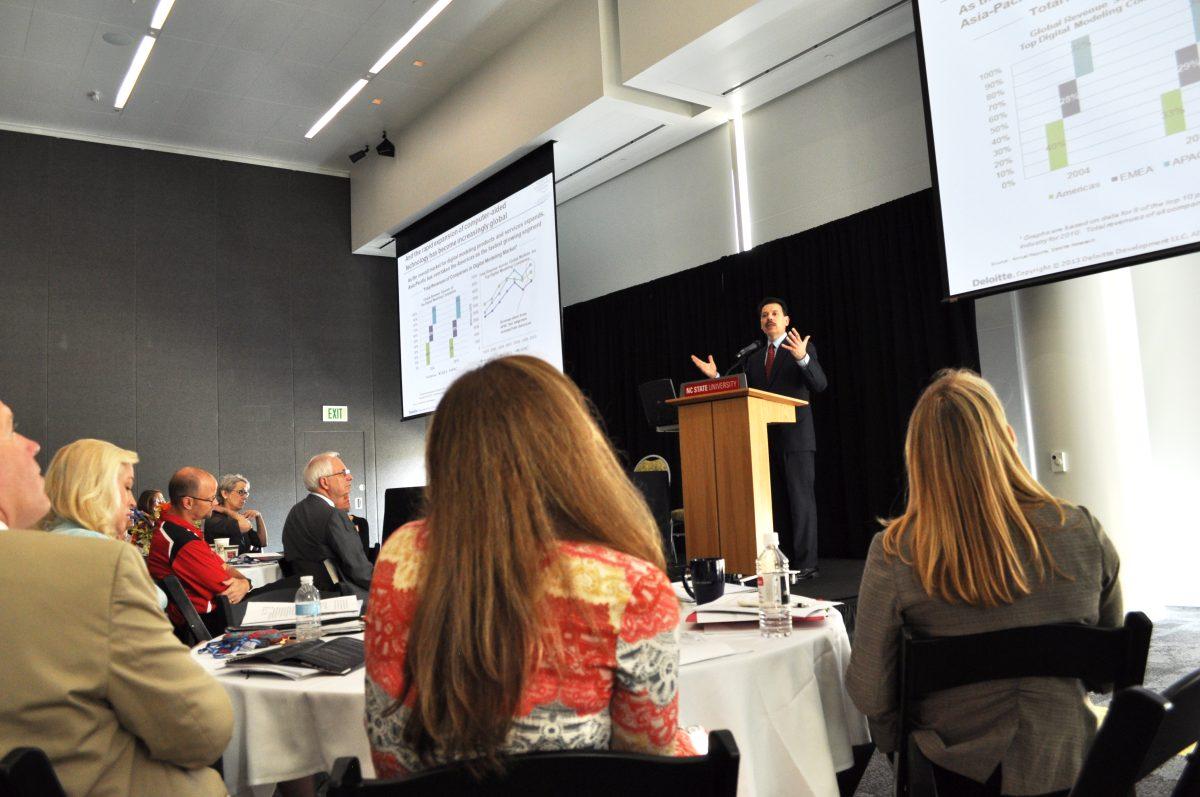The North Carolina Science Festival came to N.C. State Thursday when the Institute for Emerging Issues hosted the inaugural North Carolina Science Summit at the James B. Hunt Jr. Library.
Science and technology leaders and advocates gathered from across the state for the event to identify and discuss the challenges facing the future of the innovative science, technology, engineering and math program.
The Institute for Emerging Issues is one of the North Carolina Pathways Partnership members who helped organize the science and technology festival.
James Moeser, chancellor emeritus of the University of North Carolina at Chapel Hill and chair of the North Carolina Science Festival, said, “This is something that should rise above partisanship. We want to have a science festival within 30 minutes of everyone in the state.”
Blanton Godfrey, dean of N.C. State’s College of Textiles and chair of the Board of Science and Technology, said, “I hope we never forget the fascination of science.”
Speakers also stressed the critical nature of science and its relation to a strong, vital economy. Sharon Decker, North Carolina’s secretary of commerce, told the audience about her five tenants of economic growth: health, education, economic development and job creation, arts, culture and tourism, and the quality of life and the environment.
“The most important thing we can do for economic growth is prepare our children,” Decker said.
Decker, a native of Rutherford County, referenced Chimney Rock State Park when she told the audience about the importance of tourism to the state.
“Over 200,000 jobs in this state come from tourism.”
A brief video was shown during the morning session about Anson New Technology High School. The rural high school, which is located in Wadesboro, N.C., is a STEM program success story.
Craig Giffi, vice chairman and U.S. consumer and industrial products industry leader of Deloitte LLP, said, “The globalization we know today began about 20 years ago.” He told the audience about the emergence of the globalization era and the onset of “digital technology infrastructure.”
Giffi said he thought very few regional trade agreements existed around the world before 1980. He said Brazil, China, Germany, India, Japan and the United States were the six, original regional powers.
Giffi used the example of a Boeing-787 dream liner jet when he told the audience about the disaggregation of parts by major companies. He also showed a blueprint image of the jet during his speech to label the parts and their point of origin. The jet he showed was comprised of parts that were supplied from several countries including the United Kingdom, India, Sweden, Australia and the United States.
According to the Institute for Emerging Issues website, the North Carolina Pathways Partnership “currently consists of 26 organizations working on different aspects of the science and technology pipeline.” The partnership has the common vision of creating “an annual opportunity to collectively capture the public’s attention and influence policy and decision making at the state and local levels,” according to the IEI website.
The group began planning for the inaugural North Carolina Science Festival when it convened for its first meeting in May 2012.








